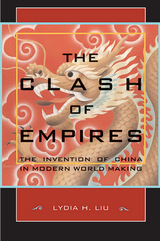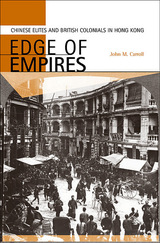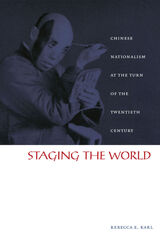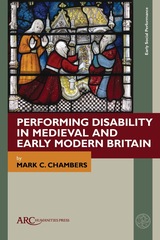
Weixing, or “surname guessing,” was a highly organized lottery practice in China wherein money was bet on the surnames of which candidates would pass the civil and military examinations. For centuries, up until 1905, the examination system was the primary means by which the Chinese state selected new officials from all over the empire and a way for commoners to climb the social ladder.
How was betting on the examinations possible and why did it matter? Opening with a weixing-related examination scandal in 1885, En Li reconstructs the inner mechanisms of weixing and other lottery games in the southern province of Guangdong. By placing the history of the lottery in a larger context, the author traces a series of institutional revenue innovations surrounding lottery regulation from the 1850s to the early 1900s, and depicts an expansive community created by the lottery with cultural and informational channels stretching among Guangdong, Southeast Asia, and North America. This book sheds light on a new reality that emerged during the final decades of China’s last imperial dynasty, with a nuanced understanding of competitions, strategic thinking by lottery players and public officials seeking to maximize revenues, and a global network of players.

Weixing, or “surname guessing,” was a highly organized lottery practice in China wherein money was bet on the surnames of which candidates would pass the civil and military examinations. For centuries, up until 1905, the examination system was the primary means by which the Chinese state selected new officials from all over the empire and a way for commoners to climb the social ladder.
How was betting on the examinations possible and why did it matter? Opening with a weixing-related examination scandal in 1885, En Li reconstructs the inner mechanisms of weixing and other lottery games in the southern province of Guangdong. By placing the history of the lottery in a larger context, the author traces a series of institutional revenue innovations surrounding lottery regulation from the 1850s to the early 1900s, and depicts an expansive community created by the lottery with cultural and informational channels stretching among Guangdong, Southeast Asia, and North America. This book sheds light on a new reality that emerged during the final decades of China’s last imperial dynasty, with a nuanced understanding of competitions, strategic thinking by lottery players and public officials seeking to maximize revenues, and a global network of players.


What is lost in translation may be a war, a world, a way of life. A unique look into the nineteenth-century clash of empires from both sides of the earthshaking encounter, this book reveals the connections between international law, modern warfare, and comparative grammar--and their influence on the shaping of the modern world in Eastern and Western terms.
The Clash of Empires brings to light the cultural legacy of sovereign thinking that emerged in the course of the violent meetings between the British Empire and the Qing Dynasty (1644-1911). Lydia Liu demonstrates how the collision of imperial will and competing interests, rather than the civilizational attributes of existing nations and cultures, led to the invention of "China," "the East," "the West," and the modern notion of "the world" in recent history. Drawing on her archival research and comparative analyses of English--and Chinese--language texts, as well as their respective translations, she explores how the rhetoric of barbarity and civilization, friend and enemy, and discourses on sovereign rights, injury, and dignity were a central part of British imperial warfare. Exposing the military and philological--and almost always translingual--nature of the clash of empires, this book provides a startlingly new interpretation of modern imperial history.

In an engaging, revisionist study, John M. Carroll argues that in the century after the Opium War, Hong Kong's colonial nature helped create a local Chinese business elite.
By the end of the nineteenth century, the colonial government saw Chinese businessmen as allies in establishing Hong Kong as a commercial center. The idea of a commercially vibrant China united them. Chinese and British leaders cooperated on issues of mutual concern, such as the expansion of capitalism and political and economic directions for an ailing China.
These Chinese also found opportunities in the colonial system to develop business and commerce. In doing so, they used Hong Kong's strategic position to underscore their own identity as a distinctive group unlike their mainland counterparts. Nationalism took on a specifically Hong Kong character. At the same time, by contributing to imperial war funds, organizing ceremonies for visiting British royalty, and attending imperial trade exhibitions, the Chinese helped make Hong Kong an active member of the global British Empire.
In Edge of Empires, Carroll situates Hong Kong squarely within the framework of both Chinese and British colonial history, while exploring larger questions about the meaning and implications of colonialism in modern history.

The Making of China’s Post Office traces the origins and early development of the country’s modern postal system. Sweeping in perspective, it goes beyond the bounds of institutional history to explore the political maneuverings, economic imperatives, and societal pressures both inhibiting and driving forward postal development. Although its prime mover was Robert Hart, Inspector General of the Chinese Maritime Customs Service, the wider cast of characters includes foreign and native staff, Qing officials, local administrations, commercial interests, and foreign governments.
Drawing extensively on archival material from the Second Historical Archives of China in Nanjing, the Tianjin Municipal Archives, and the Archive of Queen’s University Belfast, Weipin Tsai contextualizes the making of the post office within the country’s long and contested path of modernization, bringing Chinese voices to the fore. Tsai illustrates the extent to which local agency shaped the design and development of the service as it expanded from experimental coastal operation into China’s interior and on to its border periphery, the first nationwide modernization project to directly impact people’s daily lives. Ultimately, the grand spatial reach of the Post Office carried significant symbolic meaning in relation to sovereignty for the Qing government and for later Republican administrations.

China’s status in the world of expanding European empires of the nineteenth and early twentieth centuries has long been under dispute. Its unequal relations with multiple powers, secured through a system of treaties rather than through colonization, has invited debate over the degree and significance of outside control and local sovereignty. Navigating Semi-Colonialism examines steam navigation—introduced by foreign powers to Chinese waters in the mid-nineteenth century—as a constitutive element of the treaty system to illuminate both conceptual and concrete aspects of this regime, arguing for the specificity of China’s experience, its continuities with colonialism in other contexts, and its links to global processes.
Focusing on the shipping network of open treaty ports, the book examines the expansion of steam navigation, the growth of shipping enterprise, and the social climate of the steamship in the late nineteenth century as arenas of contestation and collaboration that highlight the significance of partial Chinese sovereignty and the limitations imposed upon it. It further analyzes the transformation of this regime under the nationalism of the Republican period, and pursues a comparison of shipping regimes in China and India to provide a novel perspective on China under the treaty system.

The emergence of Chinese nationalism during this period is often portrayed as following from China’s position vis-à-vis Japan and the West. Karl has mined the archives of the late Qing period to discern the foci of Chinese intellectuals from 1895 to 1911 to assert that even though the China/Japan/West triangle was crucial, it alone is an incomplete—and therefore flawed—model of the development of nationalism in China. Although the perceptions and concerns of these thinkers form the basis of Staging the World, Karl begins by examining a 1904 Shanghai production of an opera about a fictional partition of Poland and its modern reincarnation as an ethno-nation. By focusing on the type of dialogue this opera generated in China, Karl elucidates concepts such as race, colonization, globalization, and history. From there, she discusses how Chinese conceptions of nationalism were affected by the “discovery” of Hawai’i as a center of the Pacific, the Philippine revolution against the United States, and the relationship between nationality and ethnicity made apparent by the Boer War in South Africa.
READERS
Browse our collection.
PUBLISHERS
See BiblioVault's publisher services.
STUDENT SERVICES
Files for college accessibility offices.
UChicago Accessibility Resources
home | accessibility | search | about | contact us
BiblioVault ® 2001 - 2024
The University of Chicago Press









